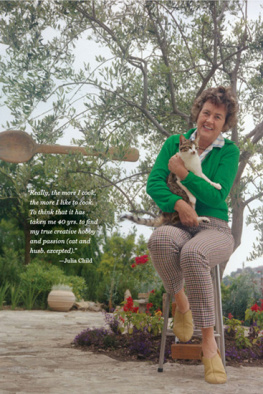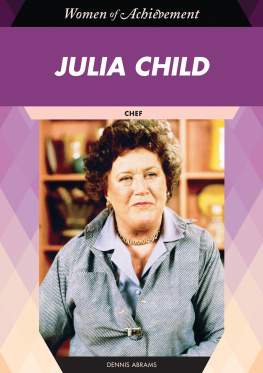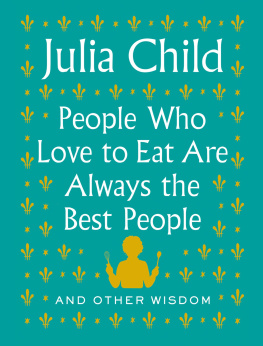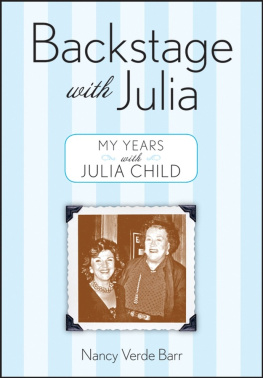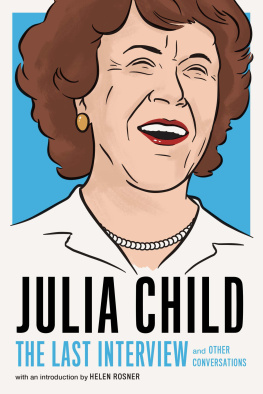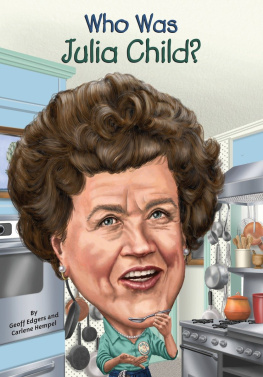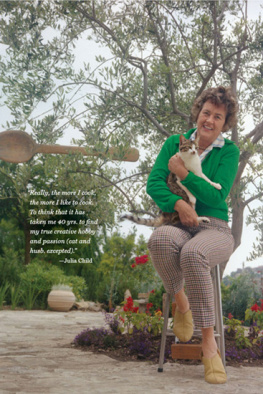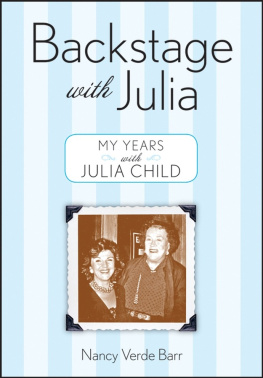

Copyright 2015 by Duo Press, LLC
All rights reserved. No portion of this book may be reproduced in any form or by any means, electronic or mechanical, including photocopying, recording, or by any information storage and retrieval system now known or hereafter invented without written permission from the publisher.
First Edition
Art Director: Violet Lemay
Designer: Beatriz Juarez
Editor: Robin Pinto
Copy Chief: Michele Suchomel-Casey
ePub ISBN: 9781938093357
Library of Congress Control Number: 2014944122
For Common Corealigned resources, please visit www.duoppressbooks.com
1 2 3 4 5 6 7 8 9 10
duopress
www.duopressbooks.com

CONTENTS
Restaurant La Couronne
France, 1948






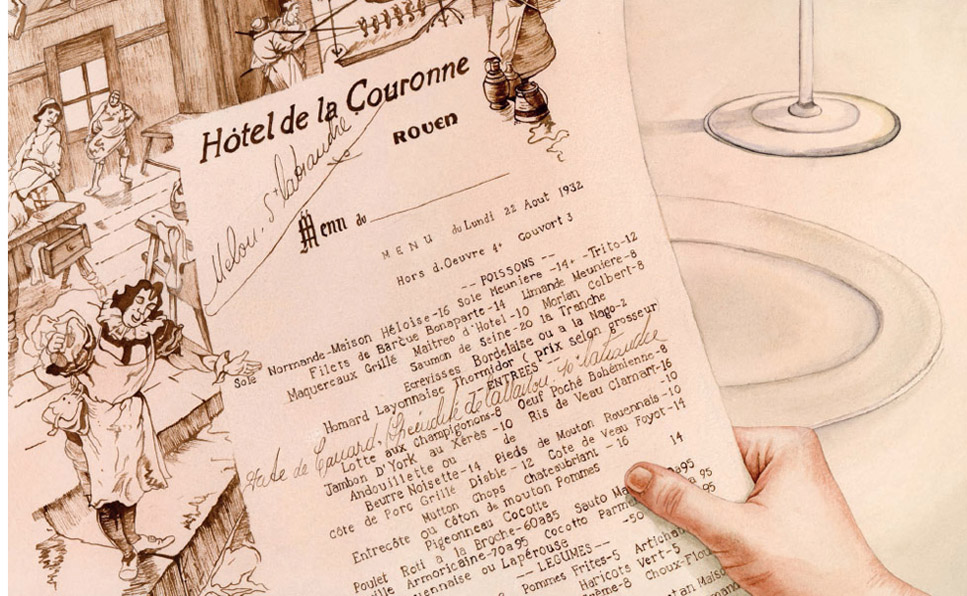

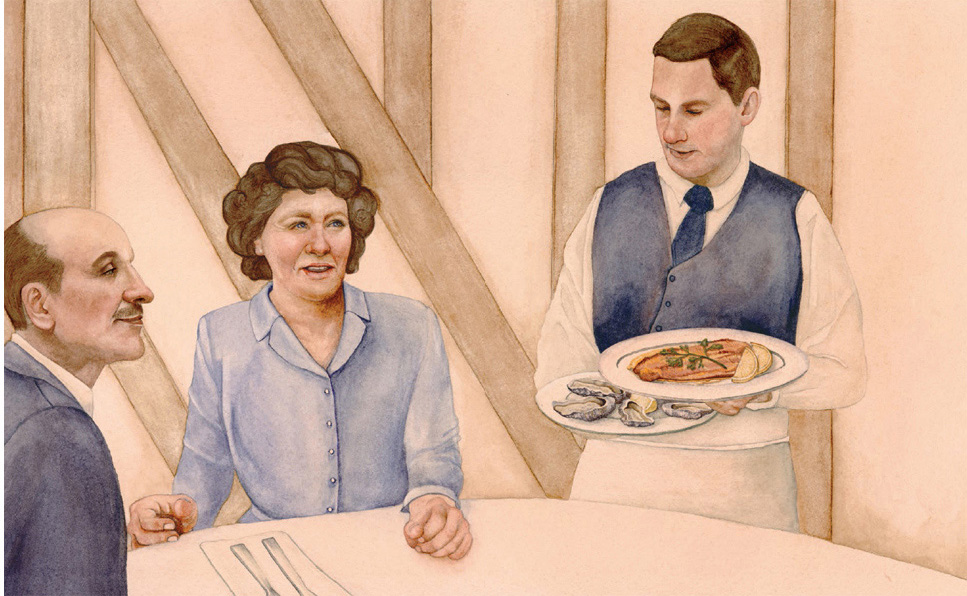

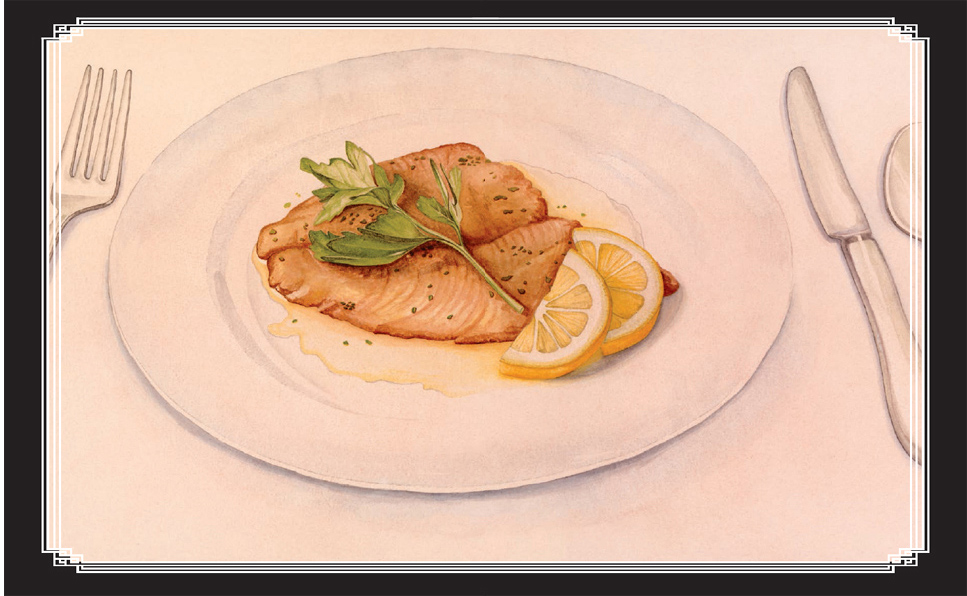

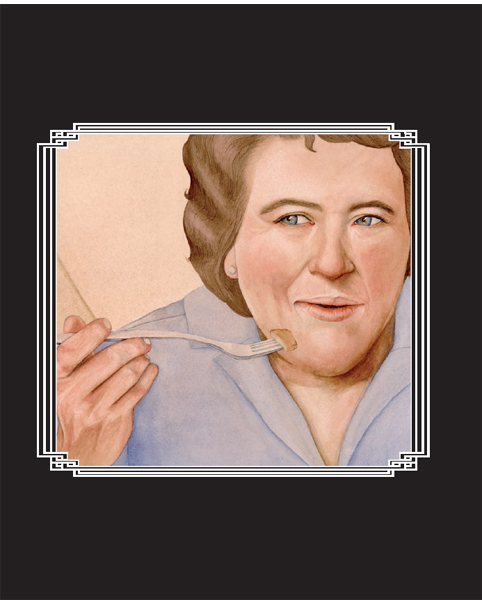

That lunch changed everything. Those salty oysters, the buttery fish, and the light, chewy bread delighted every one of Julia Childs senses and showed her just how inspiring food could be. It was her first day in France, and Julia was thrilled to join her husband, Paul, overseas for his new job. But part of her had been wondering if shed ever find a rewarding career of her ownsomething that really, truly excited her. That lunch stirred up a passion in Julia and set her on a path toward a life the thirty-six-year-old had never imagined. Years later, after her cookbooks and television shows had changed the way Americans cooked and ate, Julia would remember that lunch in Rouen, France, as the most exciting meal of my life.
The sun was shining, and the scent of rose bushes in bloom filled the air. A little girl, about two years old, sat alone on a curb. She was tall for her age, but she looked small against the green hills in the distance. She had wandered several blocks away from her home, but she wasnt scared or sad. Not in the least! She was having the time of her lifelaughing while she threw rocks at horse-drawn buggies driving by. The game lasted until someone finally recognized her and took her home.
This girl was Julia Carolyn McWilliams, born on August 15, 1912, in sunny Pasadena, California, a town Julia would later call paradisejust about the best place you could think of to grow up. Because the weather was beautiful all year long, Julia, her younger brother, John, and her younger sister, Dorothy (nicknamed Dort), played outside year round. They slept outside, too, on a porch that wrapped around their large house. Their father insisted on it, thinking the night air would be good for his childrens lungs.
Her father, John McWilliams Jr., was a real estate developer, known for being a smart businessman and for his service to the community. Her mother, Julia Carolyn Weston McWilliams (known as Caro), was a Massachusetts girl whose family could be traced back to the earliest parts of American historythe Mayflower and the Plymouth Colony. While Julia would rise to many challenges throughout her life, her wealthy family made sure she always had what she needed.
Julias father was strict and reserved, but her mother was a warm, open person who encouraged her childrens independence and freedom. Julias grandfather John McWilliams once scolded Caro for not being tougher on young Julia for her rock-throwing and other antics. In the early 1900s, the more ladylike response would have been to respect her father-in-laws authority. But Caro stood firm. Shes a child, for goodness sake, she replied, refusing to punish Julia.
Caro was used to challenging the idea of what women should do. In an era when most women married right after high school, Caro graduated from Smith College, a prestigious all-womens Ivy League school. She didnt marry until she was thirty-three, and she parented her children with a light touch, giving them the freedom to explore and play.
This suited Julia just fine. From an early age, she was the center of the action, the life of the party, the ringleader for all kinds of adventures and mayhem. Her mother wrote in her diary that Julia was always the instigator, and she worried that Julias curiosity would make it hard to keep track of her. One of these days well have to put up a fence, her mother would say. And she was right. As soon as she could, Julia took off on her tricycle around the block, racing right along with the horse-drawn buggies and trolley cars, ready to go where her curiosity led her.
When she got a little older and the tricycle turned into a bicycle, Julia and her best friend, Babe Hall, would cruise the neighborhood together, baskets filled with the ingredients for adventurescissors, thread, matches, nails, and anything they could grab that might come in handy. If Julia and Babe had written a book about their childhood, they might have called it
Next page

